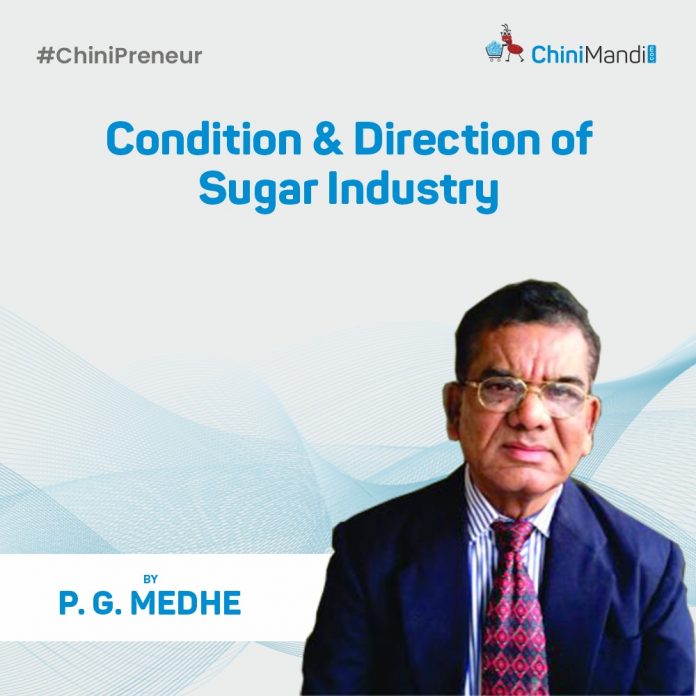The aviation industry is a critical driver of global economic growth, connecting people and businesses across continents. However, it is also one of the largest contributors to greenhouse gas (GHG) emissions, necessitating urgent measures for sustainability. Sustainable Aviation Fuel (SAF) has emerged as a game-changer in reducing aviation’s carbon footprint. As the global push for net-zero emissions intensifies, the development and adoption of SAF have become essential for the long-term sustainability of the aviation sector.
In this context, the recent strategic partnership between Boeing and Hindustan Petroleum Corporation (HPCL) marks a significant step toward advancing SAF production and adoption in India. This collaboration is expected to strengthen India’s position in the global SAF market, reduce dependency on imported aviation fuel, and contribute to environmental sustainability.
Why SAF is Crucial for Aviation Sustainability?
1) Significant Reduction in Carbon Emissions
SAF can reduce lifecycle carbon emissions by up to 80% compared to conventional jet fuel. This makes it a crucial component in achieving carbon-neutral growth in aviation.
2) Utilisation of Renewable Feedstocks
SAF is derived from various renewable sources, such as agricultural waste, used cooking oil, and algae. This reduces reliance on fossil fuels and promotes a circular economy.
3)Compatibility with Existing Infrastructure
SAF can be blended with conventional jet fuel and used in existing aircraft engines without modification, making it a practical and immediate solution for sustainable aviation.
4) Enhancing Energy Security
By producing SAF domestically, countries can reduce their dependence on imported aviation fuel, improving energy security and stabilizing fuel costs.
5) Current Status of Aviation Fuel Demand and Supply in India
6) Growing Demand:
India’s aviation sector is one of the fastest-growing in the world. The country’s aviation fuel consumption is projected to increase significantly due to rising air travel demand and India’s Aviation Ministry is seriously thinking to fulfil it in a due course of time.
7) Heavy Dependence on Imports:
Currently, India imports over 50% of its aviation fuel needs, leading to high costs and vulnerability to global crude price fluctuations.
SAF PRODUCTION IN INFIA:
Despite the potential, SAF production in India remains in its nascent stage, with limited refineries and technological advancements.
The Boeing-HPCL partnership is expected to bridge this gap by investing in research, production, and commercialization of SAF.
BOEING-HPCL PARTNERSHIP :
A Boost to SAF Development in India
Boeing, a global leader in aerospace innovation, has joined hands with HPCL, a major player in India’s energy sector, to accelerate SAF adoption. This strategic partnership aims to:
1) Enhance SAF Production Capacity
The collaboration will focus on setting up facilities to produce and scale SAF using indigenous resources.
2) Investment in research and technology to optimize SAF production from locally available feedstocks.
3) Reduce Aviation Fuel Import Dependence
With a robust domestic SAF production ecosystem, India can reduce its reliance on costly fuel imports. This will help stabilize jet fuel prices and make air travel more affordable.
4) Support Government Sustainability Initiatives
Aligns with India’s commitment to net-zero emissions by 2070.
Encourages regulatory frameworks and incentives for SAF adoption.
5) Attract Investments and Job Creation
Strengthening the SAF supply chain will create employment opportunities and attract foreign investment in India’s clean energy sector.
Challenges and the Road Ahead:
While the development of SAF in India is promising, challenges remain:
1) High Production Costs:
SAF is currently more expensive than traditional jet fuel, requiring subsidies and incentives to make it competitive.
2) Infrastructure and Logistics:
Establishing a dedicated SAF supply chain and distribution network is essential for widespread adoption.
3) Policy and Regulatory Support:
Government policies need to incentivize SAF production and mandate its blending with conventional fuel. With strategic partnerships like Boeing-HPCL and growing global attention toward sustainable aviation, India has a unique opportunity to lead the way in SAF development. By leveraging its technological expertise and abundant biomass resources, the country can position itself as a hub for sustainable aviation fuel, ensuring a greener and more resilient future for aviation.
HOW THE SUGAR INDUSTRY CAN BENEFIT FROM SUSTAINABLE AVIATION FUEL DEVELOPMENT?
Yes, the development of Sustainable Aviation Fuel (SAF) can provide the sugar industry with an additional revenue stream while enhancing its long-term sustainability. Given that SAF can be produced from biomass and waste feedstocks, the sugar industry—one of India’s largest agricultural sectors—has a unique opportunity to contribute to and benefit from this transition. These benefits can be summarised as follows…..!
1) Utilisation of Sugarcane Byproducts
Molasses:
Sugar mills produce molasses, a key feedstock for ethanol, which can be used to produce alcohol-to-jet (ATJ) fuel, a form of SAF.
Bagasse (Crushed Sugarcane Waste):
Can be converted into bio-oil through pyrolysis, which can then be upgraded to SAF.
2) Increased Demand for Ethanol-Based SAF
India already has a strong ethanol production infrastructure due to the government’s Ethanol Blended Petrol (EBP) Program. Expanding ethanol production for SAF will provide new buyers for sugar mills, ensuring steady demand beyond traditional ethanol blending in petrol.
3) Revenue Diversification and Financial Stability
Sugar mills often face price fluctuations in sugar markets, leading to financial instability. SAF production offers an alternative revenue stream that can stabilize income.
Higher ethanol demand will lead to better pricing, benefiting both sugar mills and farmers.
4) Boost to Rural Economy & Job Creation
The SAF industry will drive demand for more sugarcane cultivation, benefiting farmers.
Setting up biorefineries for SAF production in sugar-producing regions will generate jobs in rural areas.
5) Alignment with India’s Sustainability Goals
Utilising sugar industry byproducts for SAF will help reduce carbon emissions and minimize agricultural waste.
6) Supports India’s net-zero emissions target and bioeconomy growth.
Challenges and Next Steps
While the sugar industry stands to gain significantly, a few challenges need to be addressed:
1) High Production Costs:
SAF from ethanol is still expensive compared to fossil-based jet fuel, requiring policy support and subsidies.
2) Infrastructure Development:
More ethanol-to-SAF conversion plants and efficient supply chains are needed.
3) Regulatory Framework:
The government needs to define ethanol allocation for SAF alongside fuel blending programs. With the Boeing-HPCL partnership and increasing global demand for SAF, India’s sugar industry has a golden opportunity to become a key player in sustainable aviation. By leveraging existing ethanol production capabilities, sugar mills can enhance profitability while contributing to a cleaner and greener future for aviation.
Investment Opportunities and Government Support for Sustainable Aviation Fuel (SAF) in India
India’s commitment to reducing carbon emissions in the aviation sector has opened avenues for investment in Sustainable Aviation Fuel (SAF). The government’s proactive stance and the country’s abundant resources make it an attractive destination for SAF-related investments.
Investment Opportunities:
SAF Production Facilities:
1) Ethanol-Based SAF:
India’s robust ethanol production infrastructure presents opportunities to establish facilities that convert ethanol into SAF. This aligns with the government’s Ethanol Blended Petrol (EBP) Program and leverages existing supply chains.
2) Biomass Conversion:
Investing in technologies that convert agricultural waste, such as crop residues, into SAF can capitalize on India’s vast agricultural sector. This approach not only provides a renewable energy source but also addresses waste management issues.
3) Research and Development:
Investments in R&D can lead to advancements in SAF production technologies, making processes more efficient and cost-effective. This includes exploring alternative feedstocks and innovative conversion methods.
4) Infrastructure Development:
Developing storage and distribution infrastructure for SAF ensures a seamless supply chain from production facilities to airports. This includes setting up blending facilities and dedicated storage tanks at strategic locations.
Government Policies and Support:
The Indian government has implemented several policies to encourage SAF adoption:
1)Blending Targets:
The government has set ambitious targets for blending SAF with conventional jet fuel. For instance, by 2025, India aims for a 1% SAF blend, requiring approximately 140 million liters annually. More ambitiously, a 5% blend would necessitate around 700 million liters per annum.
2) Financial Incentives:
To promote local production of SAF, policy think tank NITI Aayog has proposed multiple steps, including financial incentives for producers and subsidies to offset initial production costs.
3) Public-Private Partnerships:
Collaborations between government entities and private companies are encouraged to develop the SAF ecosystem. The recent partnership between Boeing and Hindustan Petroleum Corporation Limited (HPCL) aims to advance SAF production, certification, and policy advocacy in India.
Investing in India’s SAF sector offers promising returns, supported by government initiatives and the country’s resource availability. These investments not only promise financial returns but also contribute to environmental sustainability and energy security.
Conclusion:
The rise of Sustainable Aviation Fuel (SAF) presents a transformative opportunity for India, both in advancing green aviation and unlocking new economic prospects for industries like sugar and biofuels. By leveraging ethanol and biomass waste from the sugar sector, India can reduce its dependence on imported aviation fuel, stabilize energy prices, and create a more sustainable supply chain. The Boeing-HPCL partnership, coupled with government incentives and blending targets, will accelerate SAF adoption, ensuring India remains at the forefront of this global shift.
For sugar mills, SAF represents not just an additional revenue stream but also a pathway to long-term stability and sustainability. By integrating SAF production into their operations, they can diversify their earnings, support rural employment, and contribute to India’s clean energy goals. As investments grow and policies evolve, SAF has the potential to revolutionize both aviation and agriculture, paving the way for a greener, self-reliant future.
P.G. Medhe is the former Managing Director of Shri Chhatrapati Rajaram Sahakari Sakhar Karkhana Ltd and sugar industry analyst. He can be contacted at +91 9822329898.












